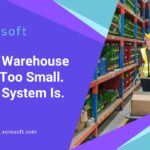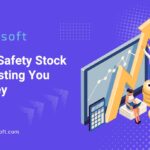
Introduction
ERP is an acronym for Enterprise Resource Planning. But that somehow doesn’t convey what it means or what it does. Back in the days (the 1960’s) when ERPs first came into play, it was primarily designed for inventory management. However, it has evolved to encompass a lot of other functions. To fully understand an ERP, let’s take a step back to fully consider all the processes that are required to manage a business. ERPs take all these processes and integrates them to help you run your business. These processes include anything from customer relationship management (commonly referred to as CRM), order management, inventory management, labor management, accounting, etc.
Some of the key features of an ERP solution are
- Shared database
- Support multiple business functions
- Detailed reporting
- Enhanced process automation
- Dashboards to track metrics
- Third-party integrations
Does your E-commerce business need an ERP ?
Each business is unique in its own way. But at the core, businesses follow similar processes and face similar issues. For example, one of them could be to come up with sales forecasts, keeping track of inventory, ensuring customer satisfaction, balance your financial ledgers, etc. Your business might be flashing the red light, telling you that it might require a bit of automation and better management. Here are signs that you should look out for.
Your Sales and Customer Experience are Taking a Hit
Sales is directly related to providing good customer buying experience and managing inventory efficiently. Right from the time a customer lands on your e-commerce website till the time they check out, you need to ensure a smooth sail. This becomes a key factor in deciding whether you need them to be returning customers. This can also extend itself to turning a good customer experience into word-of-mouth marketing. This means more customers and more customers means more sales.
An integral part of this experience is to have an up-to-date inventory management system. Are the products listed on your E-commerce website out of stock? Have you stocked your warehouse with the products that are seeing high demand? You do not want your customers to leave your website empty-handed. This will not only be disappointing for the customer but you are also missing out on sales opportunities. If you do not have stock but your website lists the product as being available for purchase, your customers will be disappointed once again. These are challenges that you cannot ignore as it will have a drastic effect on your brand reputation as well.
Your Accounting is Complex and Time-consuming
Numbers are scary and dealing with them is time-consuming. For an E-commerce business, there are accounts that need to be tracked both internally and externally. Internally, so that you keep your employees paid through the year and ensure that the processes are running smoothly. Externally, so that you know how much money is flowing into your account through sales. This means twice the scares and twice the amount of time spent on tracking them.
Even if you had the best accountants to manage this for you, imagine having to do this for a large number of employees who fall under different levels of hierarchy and the sheer number of products that get sold day in and day out. It’s a daunting task but it doesn’t have to be that way if you opt for an easy-to-use ERP software.
Your E-commerce Business Lacks Transparency
Be it your customer or your investor, you should be able to already have answers to questions they ask about their purchase or investment. At any given point in time, you should be able to give them the answers they seek. They could be questions about the estimated delivery time of a product that your customer purchased, the turnover or sales that your E-commerce business has made that quarter, it could just be anything.
Does your present E-commerce business have a way to handle these situations? Does it keep the customers informed with updates on a recent purchase they made? Does it send regular reports to its investors on how the sales and ROI have been? Is it capable of giving instant answers to such questions?
Having answers ready is crucial to your E-commerce business because transparency is the key to customer loyalty and investor happiness. You need to ensure that data and reports are readily available at all times. If you have trouble delivering this, then you might want to reconsider your business process.
You Use Numerous Software to Run Your E-commerce Business
As mentioned earlier, there are plenty of processes involved when managing an E-commerce business. However, in today’s world, E-commerce businesses look to digitize these processes. You’ll be amazed at the number of software solutions available for each of these processes. However, this results in using multiple software and it can get chaotic as your E-commerce business begins to scale. It can pose a serious problem when managing your business.
What does ERP means to your E-commerce business?
If you own an E-commerce business or are a part of it, then you would agree that it is the most relevant and revolutionised way of buying and selling products. It is relevant because we all live on the internet and in a digital world. It is revolutionary because selling has moved from commerce to “E”-commerce.
You might also know that to run an E-commerce business, you need more than just a robust platform to set up your business on. The greatest challenge is to find a single solution that addresses all your business requirements. The answer is an ERP software. Integrating your E-commerce business to an ERP can do wonders for your business in many ways.
Digitizing Self-Service
Integrating your E-commerce business with an ERP software digitizes customer buying. It can inform customers on what’s available and what’s out of stock. It can help with product suggestions based on purchase or browsing history. Customers can get regular updates on how far away they are from receiving the product. It helps customers with all details pertaining to their purchases. This not only reduces operational costs but also adds credibility to your business.
Eliminating Data Redundancy and Errors
To run an E-commerce business efficiently you need software that runs seamlessly and without much human intervention. Moving data from backend to frontend isn’t easy without an ERP in place. It needs to jump through various processes before it reaches the database. Even after it does, there is no assurance that it will be error-free. Data could include buyer information, real-time sales data, human resource details, etc. Imagine having to pass on such information using different software across multiple departments without any logjams. Data repetition and errors are a common sight when you use different software to deal with such data. With an ERP integrated to your E-commerce business, you can get rid of such inefficiencies and manage your business better.
Better Inventory Management
We discussed the importance of inventory management for good customer experience. Inventory or products move from the warehouse to the distribution center, and finally to your customers’ doorsteps. As you keep selling products, you need to keep replenishing your stock. With an ERP software in use, much of the supply chain can be optimized. It also helps in reducing costs in tracking stock inventories and improve your ROI.
Increase in Revenue Growth
What’s the point of investing in a software that doesn’t show a promise of ROI? Well, an ERP integration has many benefits when it comes to improving your revenue. Since it is integrated with your E-commerce business, most of your sales and revenue data are readily available and are updated in real-time. With this information, you can get a deep understanding of business revenue. You will be in a better position to identify and manage cost variances. You will also be able to allocate financial, human, and operational resources better. This will eventually lead to rewarding outcomes such as an upward revenue growth, business expansions, better-paid employees, etc. You get the drift, don’t you?
Over to You
ERP integration has great benefits apart from the top few that we have listed in this article. For the complete list, get a copy of our ebook “ERP and E-commerce Integration – 101 Benefits”.
If you are have already integrated an ERP with your E-commerce business, share your experience with us as comments. If you are looking for an ERP solution, you know where to find the powerful cloud-based ERP Software!




